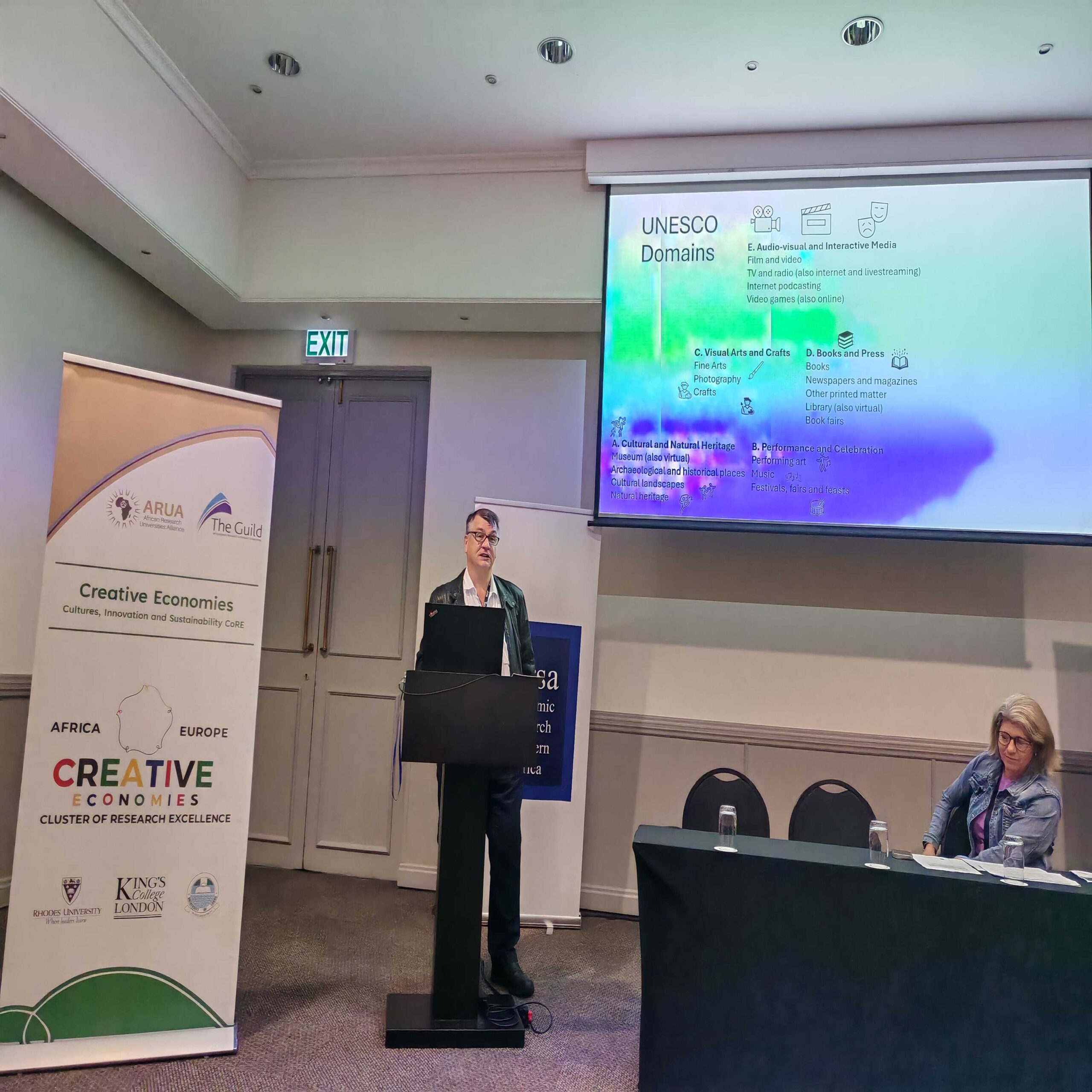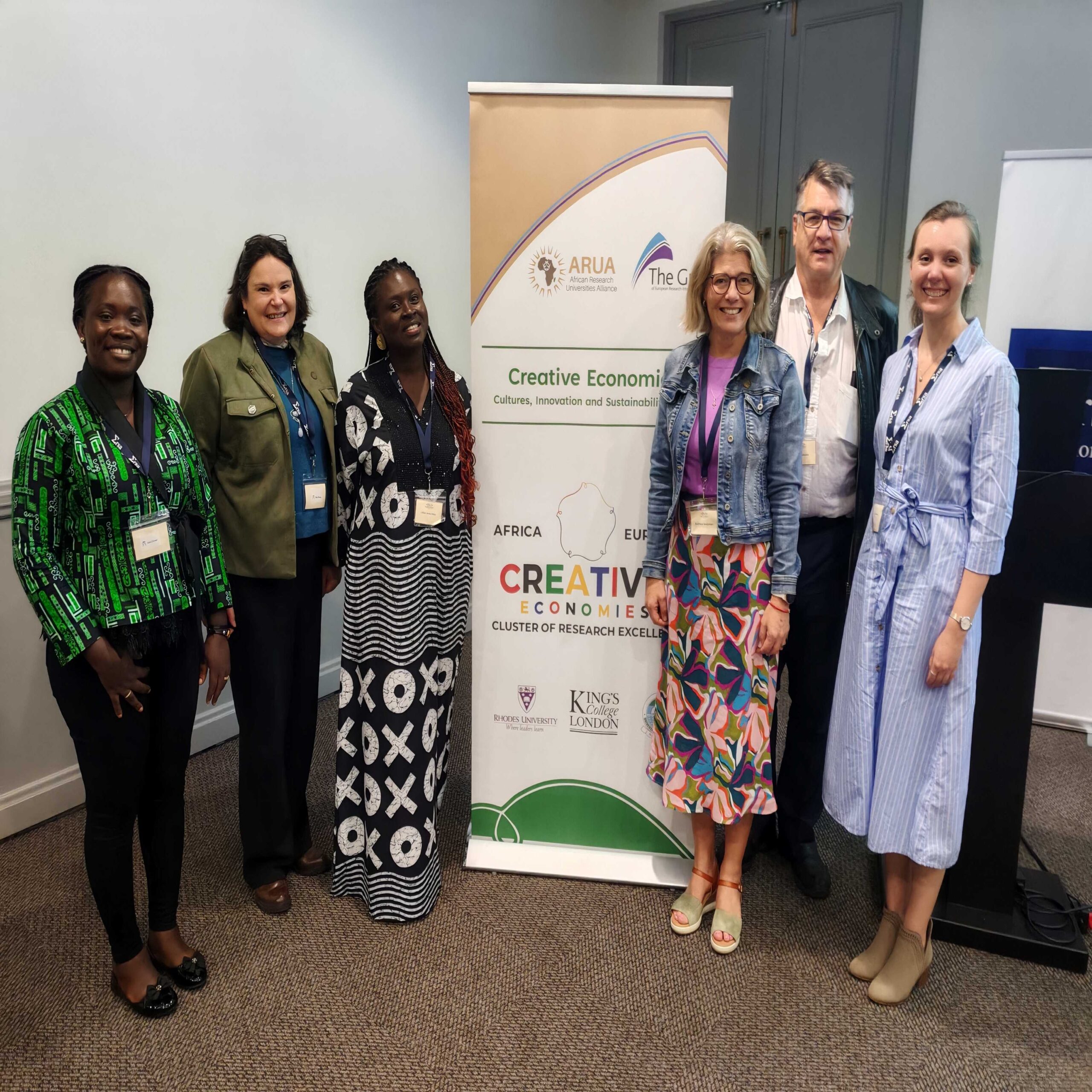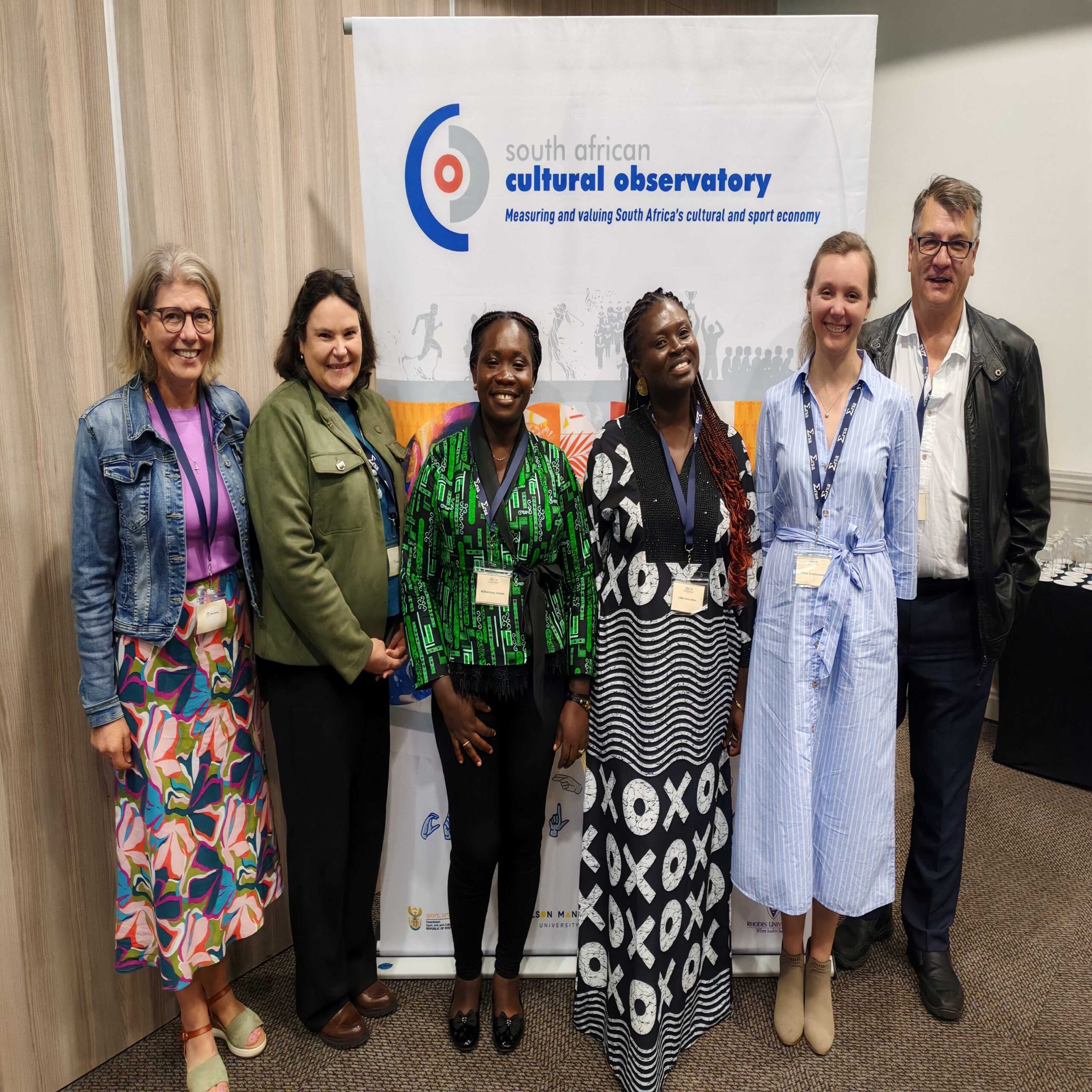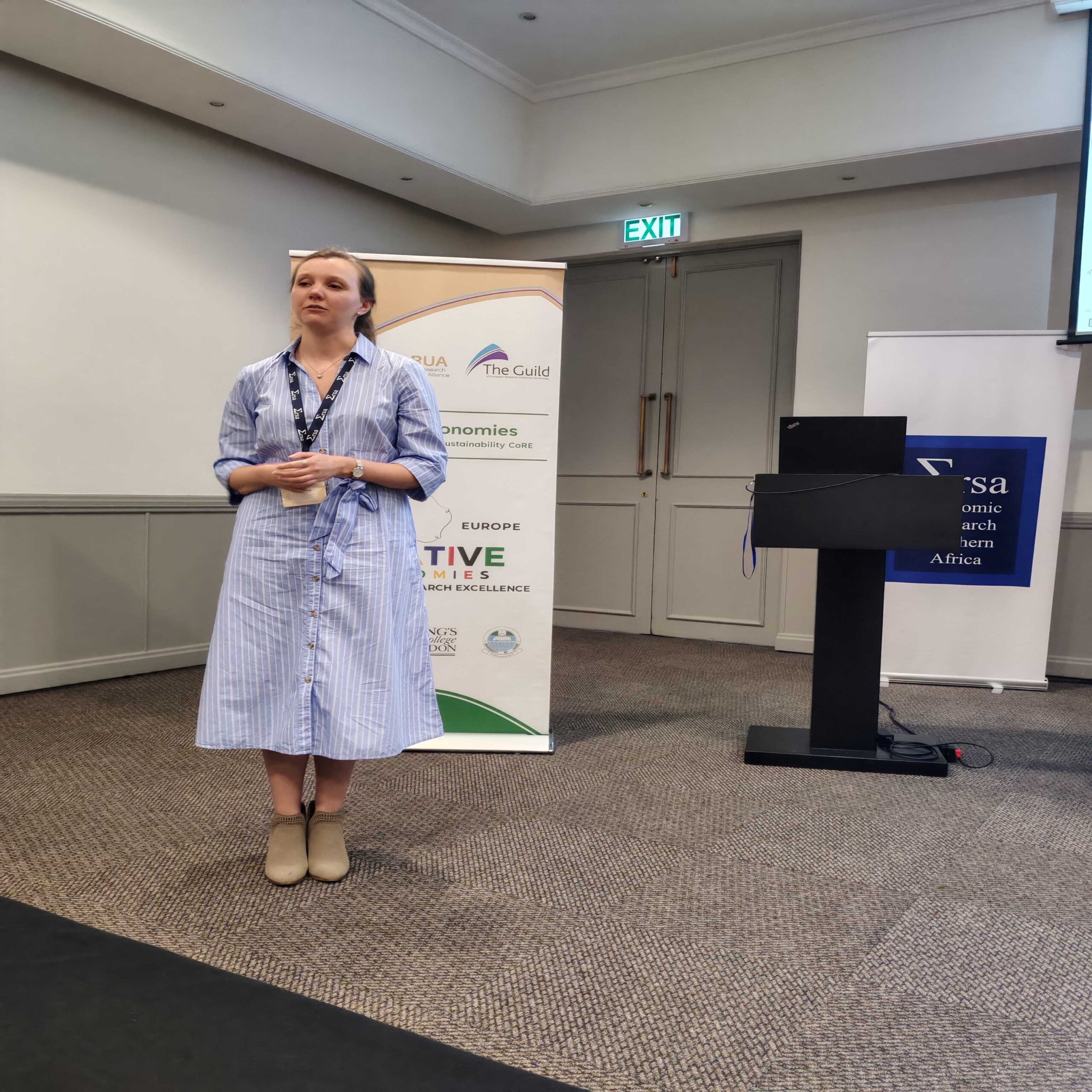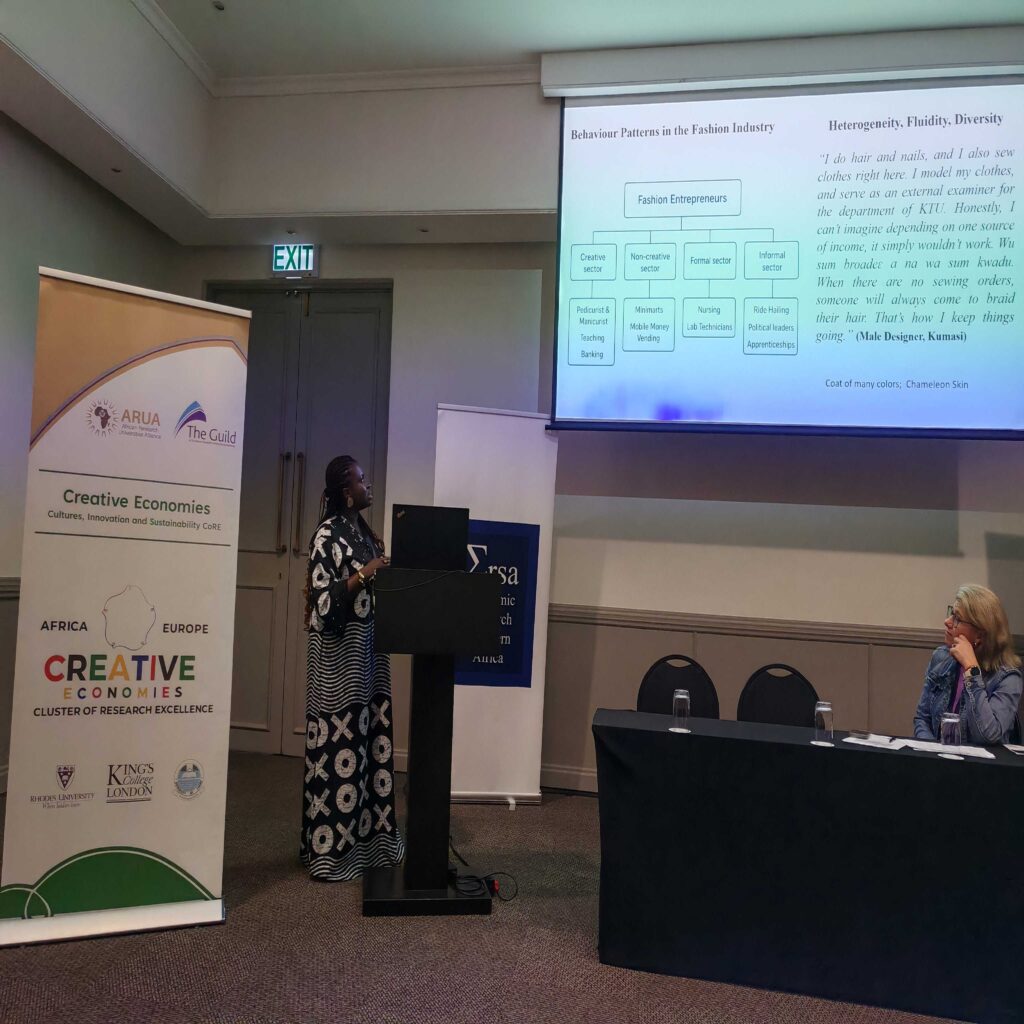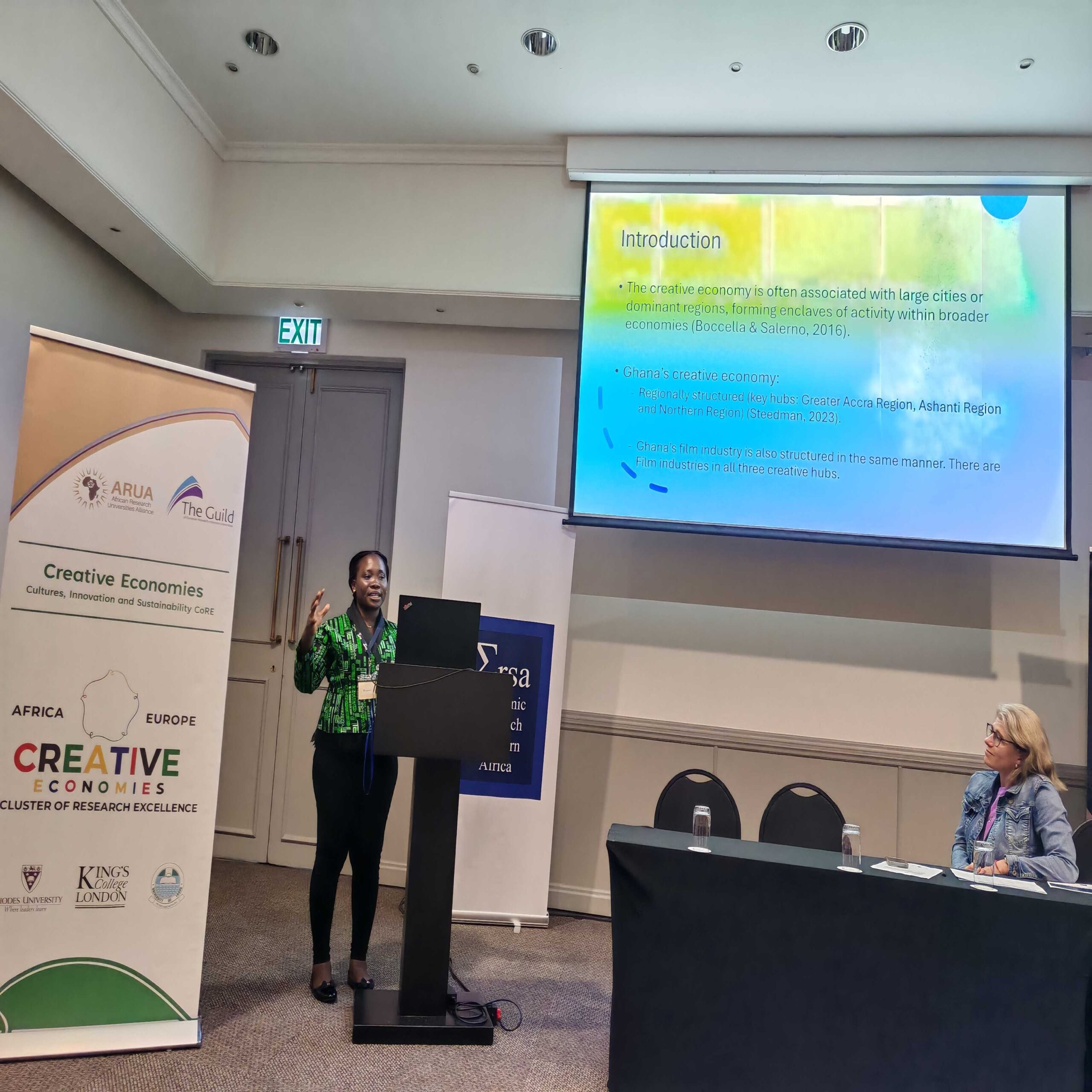The Economic Society of South Africa (ESSA) held its Biennial Conference on 8th to 10th September 2025 at the Lord Charles Hotel in Somerset West, South Africa. The CoRE (via Professor Jen Snowball) has led a special session on the Economics of the Cultural and Creative Industries in Africa for this conference, which was an excellent opportunity to showcase some of the work of our members and build the profile of the Cluster of Research Excellence: Creative Economies: Cultures, Innovation and Sustainability.
Read a report by Professor Jen Snowball on ARUA/The Guild Special Session: Creative Economies in Africa: Cultures, Innovation and Sustainability, held from the 8th to the 10th of September, the Economic Society of South Africa held its Centenary Conference in Somerset West, South Africa.
As part of the conference, a special session linked to the ARUA/The Guild Cluster of Research Excellence in Creative Economies, showcased innovative research on the role of creative economies in Africa.
The session emphasised how cultural and creative industries (CCIs) contribute to post-COVID recovery, employment creation, and sustainable growth, while also highlighting the unique challenges faced in different sectors. Presenters were from South African and Ghanaian researchers who are part of the Cluster of Research Excellence in Creative Economies. A Core partner, the South African Cultural Observatory, was also represented.
The first paper was from Prof Andre Gouws (Independent Economic Consultant, South Africa) on A Cultural Satellite Account: A Panoramic Perspective of South Africa’s Culture and Creativity. The paper gave an overview of how a social accounting matrix, based on national economic data, can be used to measure the contribution of the CCIs to the economy, employment, and international trade.
Lilian Ama Afun (University of Ghana Business School) presented on “Creative Fashion Entrepreneurship and Side-Hustles in Ghana,” showing how CCI entrepreneurs utilise diversified income streams to support their creative work.
Fiona Drummond (Rhodes University) presented on Determinants of Lost Income in South Africa’s Freelance Creative Labour Market, focusing on the characteristics of CCI freelancers in South Africa who were most vulnerable during COVID-19.
Wilhemina Tetteh (University of Ghana) presented a paper on Adapting to the Digital Shift: Women Film Producers in Kumasi. Her work tracked ways in which the shift to online film distribution in Ghana , through platforms like YouTube, created both some challenges and opportunities for women filmmakers.
Collectively, the session highlighted both opportunities and vulnerabilities in Africa’s CCIs, underscoring the importance of inclusive, sustainable, and resilient approaches to creative economy development.
ESSA Special Session Papers: Creative Economies in Africa
Andre Gouws: A Cultural Satellite Account: A Panoramic Perspective of South Africa’s Culture and Creativity (Independent Economic Consultant, South Africa)
Lilian Ama Afun: Creative Fashion Entrepreneurship and Side-Hustles: A Mainstream Dual-Employment Strategy for Enhancing Income and Sustainable Growth in Ghana’s Fashion Industry (University of Ghana Business School)
Fiona Drummond: The Determinants of Lost Income During the COVID-19 Pandemic: The Case of South Africa’s Precarious Freelance Creative Labour Market (Rhodes University, South Africa)
Wilhemina Tetteh: Adapting to the Digital Shift: A Case of Women Film Producers in Kumasi and the Evolving Creative Economy (Department of Theatre Arts, University of Ghana)
